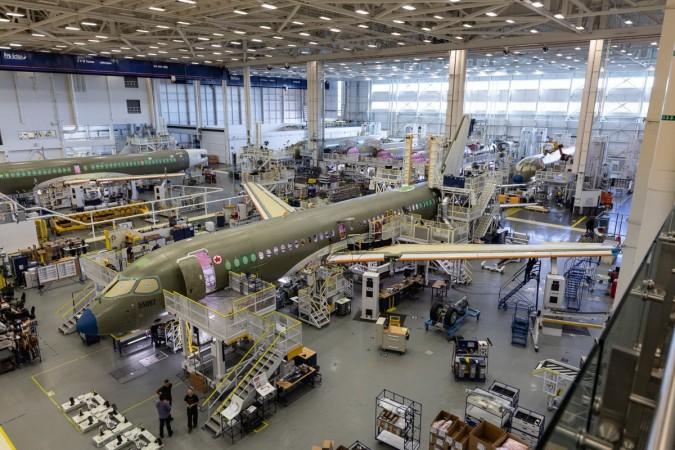
In a bid to consolidate core digital work within the company, Airbus, the European rival to US planemaker Boeing, is planning to double the work it does in-house in its new information management centre in Bengaluru, according to reports.
The move, in line with a global trend, is expected to be a boost for Prime Minister Narendra Modi's Make in India initiative. The top passenger aircraft maker plans to raise its in-house IT work from the current 20 per cent, according to The Economic Times. Airbus has about 1,400 staff in its information management unit, of which 300, are in Bengaluru.
"To get from 20 per cent to 40 per cent, we can't do it from one footprint (in Europe) alone and one of the ways is leveraging our presence in India," the report quoted Airbus Group India Chief Information Officer Carlo K Nizam as saying. He, however, did not indicate any timeline to achieve this target.
However, the company plans to nearly double the IT staff in India this year, the report says. The company also has an engineering hub attached to the IT wing that employs more than 1,000 people.
"We wouldn't outsource the architecture of the aircraft. In the past, we were heavily outsourcing our neural networks and IT systems. Part of what we are insourcing what we consider as roles such as architecture and in new skills," the report quoted Nizam as saying.
Airbus bought aerospace components and services worth around $550 million from 46 vendors across India last year, said Airbus India president and managing director Anand Stanley. This is expected to increase to around $650 million this year, he said. "Our latest information management facility is about value play. It is about insourcing rather than outsourcing. It is about core and not non-core," the report quoted Stanley as saying.
Several Indian IT firms like Infosys, Wipro, Tech Mahindra and HCL Technologies-owned Geometric provide IT as well as engineering and design services to Airbus as part of the Make in India programme, according to an Airbus note in 2016.
Industry observers say the move by Airbus is part of a global trend of moving back work from vendors reducing outsourcing and increase the share of insourcing in core activities. "Airbus' American competitor, Boeing, is a classic example," said Avimanyu Basu, lead analyst for engineering services at ISG. Airbus' interest in intensifying collaboration and establishing a Global In-house Centre is aligned to that trend, he said.














